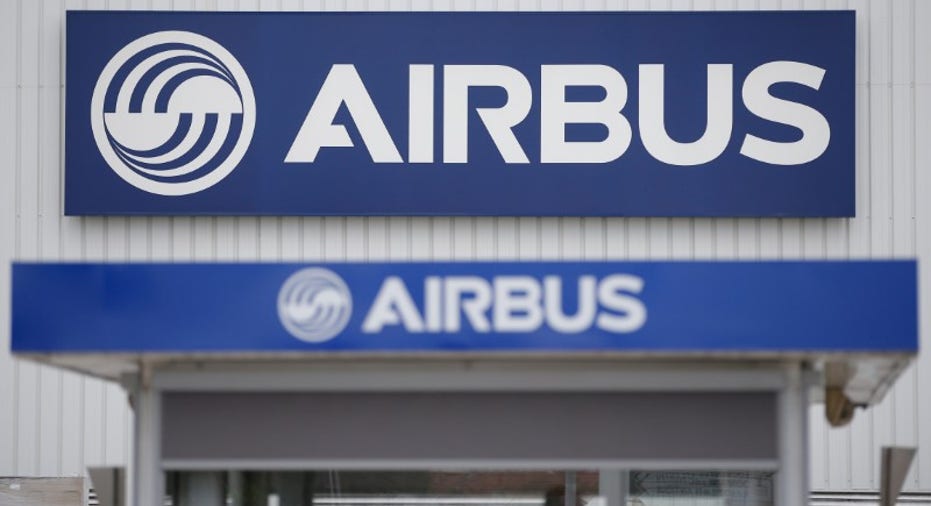Airbus's legal troubles grow as admits inaccurate U.S. arms filings

PARIS (Reuters) - Airbus said on Tuesday it had uncovered inaccuracies in its filings to U.S. regulators over arms technology sales, drawing the United States for the first time into a scandal over alleged misconduct at Europe's largest aerospace firm.
Airbus also warned about potentially significant fines resulting from existing bribery investigations in Britain and France over the use of middlemen in civil airplane sales, which have triggered a sweeping internal investigation.
But it said it was too early to guess the size or timing of any European penalties, or the outcome of the new U.S. findings.
Shares in the defense and civil aviation group rose more than four percent after it posted a smaller than expected drop in third-quarter profits despite jetliner delivery delays.
However the gains were overshadowed by news that Airbus had itself unearthed inaccuracies in past filings to the State Department on defense technology exports.
These involved inaccurate statements made by Airbus under a section of the U.S. International Traffic in Arms Regulations (ITAR), which governs the use of commissions and agents.
Airbus said the flaws were first discovered during an audit at the end of 2016 and were confirmed in an internal follow-up review completed in the third quarter.
Finance Director Harald Wilhelm said the European company had not disclosed any secrets about U.S. technology and that the issue was restricted to the use of sales agents and commissions, governed under part 130 of the ITAR rules.
It is separate from investigations into the use of agents in commercial airplane sales, which are not subject to the same U.S. controls as weapons exports, but do have some U.S. restrictions over the use of advanced navigation technology.
"This is about defense equipment and services related to it," Wilhelm told reporters.
CO-OPERATION
Wilhelm declined to say whether the latest disclosure could lead to an investigation by the U.S. Department of Justice, which has so far stayed out of the European bribery probes.
The DOJ shares jurisdiction for ITAR rules with the State Dept where criminal activity is suspected.
A person familiar with the latest case said it involved inaccuracies over both names of agents and amounts paid.
That echoes inaccuracies in applications for UK export aid which triggered the separate UK and French probes, but the now-disbanded headquarters team at the center of those accusations was not involved in the U.S. ITAR process, sources said.
Airbus hopes that by self-reporting and co-operating fully with the European probes it can qualify for a deal similar to a $680 million settlement granted to Rolls-Royce <RR.L> this year.
Legal experts estimate Airbus faces fines in the billions because of the scale of suspect paperwork dating back years.
The cost of legal advice and running its own investigations pushed up headquarters cost sharply in the third quarter.
The world's second largest planemaker after Boeing <BA.N>, posted third-quarter core operating earnings of 697 million euros ($811 million), down 4 percent on lower plane deliveries.
It took a further small charge for the troubled A400M military project and warned of further costs later this year.
It reaffirmed its 2017 guidance but acknowledged it would miss an informal goal of 720 jet deliveries that was higher than the official target of 700. Airbus has given different written and verbal delivery targets for several quarters in a row.
The shortfall is chiefly the result of engine delays for the A320neo. Airbus now expects to deliver fewer than 200 of the aircraft this year, compared with a target of "around 200".
Markets had expected a weak quarter due to delays in commercial aircraft and a build-up of inventory.
Analysts on average expected third-quarter adjusted operating profit down 5.6 percent at 690 million euros on revenues up 1.8 percent at 14.2 billion, according to a Reuters survey.
($1 = 0.8595 euros)
(Reporting by Tim Hepher and Cyril Altmeyer; Editing by Sudip Kar-Gupta and Mark Potter)



















